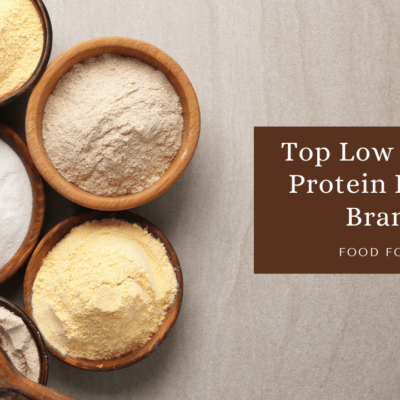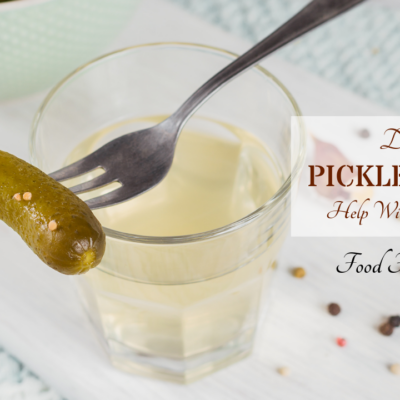
Whiskey is well loved as a delicious drink, one with a rich and often smokey flavor that can vary dramatically from one expression to the next. You might enjoy sipped slowly on its own or perhaps as an ingredient in a complex cocktail. What about the health effects? Is whiskey good for you? Could it possibly be?
The obvious answer here is no. Most of us see alcohol as an unhealthy treat, something that isn’t good for us, but that we enjoy anyway. This is a logical way to see things, as so many studies find that alcohol can cause harm.
Yet, whiskey does have interesting features too, ones that might have positive effects on your health. This means that, in the right context, a little whiskey could possibly do you more good than harm.
Is Whiskey Good For You?
- The Potential Benefits Of Whiskey
- The Risks Of Whiskey
- How You Can Use Whiskey Well
- Is Whiskey Better Than Other Types Of Alcohol?
- Final Thoughts
The Potential Benefits Of Whiskey

A Low Sugar Spirit
Straight spirits like whiskey can be much healthier than beer or wine, as there’s little sugar to worry about. You’re also looking at around 70 calories per ounce of whiskey, making this a low calorie drink.
These features make whiskey a good choice if you’re trying to lose weight. There might even be more direct weight loss effects, as whiskey can temporarily decrease sugar cravings. Plus, whiskey is an easy spirit to enjoy neat, so you don’t need to worry about high-calorie mixers.
Whiskey is also free from carbs, making it easy to include on a keto diet.
Decreases Heart Disease Risk
Whiskey has some direct benefits on your health as well, starting with a decreased risk of heart disease. This is partly due to the alcohol content, as low to moderate alcohol intake helps to lower blood pressure, which is a heart disease risk factor.
Whiskey also contains some polyphenols. These plant-based compounds can help to decrease cholesterol and triglyceride levels in your blood.
Interestingly, whiskey also has blood thinning properties. This effect means that whiskey helps to decrease your stroke risk.
Helps With Cold Symptoms
Whiskey famously makes you feel better when you have a cold (a hot toddy is the perfect way to take advantage of this!). You may find that whiskey helps you to breathe a little better, reduces your cough, and clears congestion.
Whiskey helps to soothe a sore throat too, partly because it has a numbing effect. If you make a hot toddy, you can combine the whiskey with other ingredients that help your throat, like honey and lemon juice.
Having a little whiskey can even help you to go to sleep. However, it’s best to stick to small amounts of whiskey when combatting a cold, as too much alcohol will affect the quality of your sleep – and you need all the rest you can get to recover well.
Finally, after having a little whiskey, your cold symptoms may just seem to matter a little less.
Could Decrease Diabetes Risk

Alcohol consumption has been linked to decreased risk of type 2 diabetes. Plus, for people with type 2 diabetes, alcohol can help to improve glycemic control.
This effect comes from the alcohol itself, rather than any compounds specific to whiskey. Still, why not use whiskey as your spirit of choice? It’s certainly delicious enough.
Besides, whiskey is a low carb drink, making it even more suitable for diabetics. So, even if it doesn’t make your blood sugar levels better, it shouldn’t make them worse either.
Can Help To Reduce Stress
If you’re coming home from a hard day of work or are dealing with a crisis at home, what’s better than a glass of whiskey to help knock the edge off?
There are immediate emotional benefits to doing so, but that’s not all. We know that chronic stress is linked to many health problems. So, finding good ways to decrease your stress could easily protect you from health problems further down the line.
There’s a catch here though.
Alcohol works well to take the edge off every so often, but you shouldn’t be using it as your go-to stress reduction tool. In fact, reducing stress without alcohol should still be your primary approach. Otherwise, you risk becoming dependent on alcohol to feel okay – and that’s never a good path to go down.
Reduces Anxiety
Alcohol can also help to reduce anxiety, an effect that extends to whiskey. This is one reason why having a drink or two makes you feel much more at ease in a room full of strangers.
Once again though, you shouldn’t use alcohol every time you feel anxious. Doing so decreases your ability to manage anxiety in a healthy manner, while also making you more dependent on alcohol.
The Risks Of Whiskey

The problems of too much alcohol are no secret. Drinking has ruined countless lives, partly because alcohol is addictive and consumption can easily spiral out of control.
Studies have also consistently linked excessive drinking to a whole host of serious health issues, including stroke, high blood pressure, cancer, pancreatitis, liver disease, and more. That’s just the physical issues.
There are plenty of mental impacts of drinking too, not to mention the way that alcohol can harm your social life and relationships.
To put it bluntly, there are endless risks with excessive drinking and no health benefits whatsoever.
All of the benefits we talked about before come from low to moderate alcohol consumption. That’s often defined as one to two standard drinks per day (although, the ideal amount can vary from person to person).
Still, even low to moderate consumption comes with some risks, including a slight risk of some types of cancer.
There’s the addictive aspect to consider as well. Even if you never become addicted to alcohol, it’s easy to start drinking a little more each time, as your tolerance increases. Doing so can easily tip you from having a healthy amount of whiskey to an unhealthy amount. If this happens slowly enough, you might not even notice the shift.
How You Can Use Whiskey Well
Whether whiskey is helpful or harmful really comes down to how you use it. This includes what you’re mixing with your whiskey and, more importantly, the amount that you’re drinking.
After all, most of the risks of alcohol are dose-dependent. This means they get increasingly significant the more you drink. If you’re having one or two standard drinks most nights, then you don’t have much to worry about.
But, if you’re having multiple drinks throughout the day, those risks start to stack up. This is true even if you’re rarely getting drunk.
To get around this, try paying close attention to the amount that you drink each day. Stick to the one to two drink limit wherever you can. If you find yourself wanting more than that in a day, consider having some alcohol-free days to balance things out.
Don’t forget about mixers either. While whiskey itself is low in sugar, many whiskey cocktails aren’t. Plenty of them add soda or sugar syrup into the mix. That extra sugar isn’t going to do your health any favors at all.
Finally, be aware of the decisions you make when you’ve been drinking. Alcohol decreases inhibitions, which often means that we make poorer choices once we’ve had a drink or three.
In particular, you might find it harder to stick to a diet when you’ve been drinking and might be more likely to eat fatty foods and sugary treats (especially if you’re at a party).
Is Whiskey Better Than Other Types Of Alcohol?

Many of the benefits and risks that we’ve talked about are associated with alcohol, rather than whiskey itself. You do get some interesting polyphenols in whiskey, but other types of alcohol have their own plant-based compounds.
Red wine is a classic example, as some of the antioxidants present (particularly resveratrol) are thought to be powerful for heart health. Even tequila is sometimes promoted as offering benefits, including the potential to increase weight loss.
In practice, the plant-based compounds in alcohol often aren’t that amazing. While they may be good for health in some ways, you’re likely to get many more important compounds by focusing on fruits and vegetables, along with so-called superfoods like spirulina.
When we get down to it, most types of alcohol are similar in terms of benefits and risks.
Whiskey does, however, stand out in one way – it’s easy to drink slowly on its own. Sure, you can sip any type of spirit you like, but whiskey is more naturally suited to this than any other. There are so many different nuanced flavors to enjoy, especially if you focus on aged whiskey.
Final Thoughts
If you keep an eye on your intake then yes, whiskey could offer some health benefits. There’s even evidence that low to moderate alcohol intake could decrease your risk of heart disease, stroke, and diabetes.
Let’s not kid ourselves though – whiskey isn’t a health tonic and it never will be.
At best, whiskey is a delicious drink that might offer subtle benefits if you don’t consume too much. That’s it.
If you truly want to improve your health, alcohol isn’t the best tool to use. Fruits, vegetables, whole grains, and legumes are all much more powerful and well-researched ways to stay healthy. The same is true for being physically active.
Frequently Asked Questions
Is Whiskey Gluten Free?
Distilled spirits are all considered gluten free – even products like whiskey, which are often made with rye or barley. This is because the distillation process removes any gluten from the alcohol, leaving you with a pure gluten free product.
Does Whiskey Go Bad?
If your whiskey remains unopened, then it should last indefinitely. However, once the bottle has opened, it starts to oxidize. As a general rule, an opened bottle of whiskey should still last you a year or two, but the exact time is influenced by light levels, temperature, and the amount of whiskey in the bottle.
Thankfully, whiskey doesn’t go bad in the traditional sense. While it loses flavor once it has oxidized and may taste a bit strange, the whiskey isn’t going to cause you any harm.
Does Whiskey Help With A Cold?
Whiskey can help with some of the symptoms of a cold, such as clearing your sinuses, reducing muscle aches, and generally making you feel better. This is particularly true if you use the whiskey as part of a hot drink (like a hot toddy).
However, these effects only apply to cold symptoms. Whiskey isn’t going to help you recover from the cold any faster. Having too much whiskey could even make matters worse if it ends up dehydrating you or having negative effects on your immune system.
Does Whiskey Contain Sugar?
Spirits like whiskey are essentially sugar free (there’s a very tiny amount of sugar present, but too little to matter at all. Of course, this isn’t the case for flavored whiskeys. These often contain more sugar, especially if you’re talking about something like honey whiskey.
Does Whiskey Freeze?
Like most spirits, whiskey won’t freeze in an average household freezer. Because of the alcohol content, your freezer would need to be kept at a lower temperature than 0˚F.
This means you can store your whiskey in the freezer for a little while to cool it off. However, it’s best not to keep it in there, as the low temperatures aren’t good for the quality of your whiskey.

















 16 Spices For Cod That Will Surely Elevate Your Cod Dishes!
16 Spices For Cod That Will Surely Elevate Your Cod Dishes!
Leave a Reply